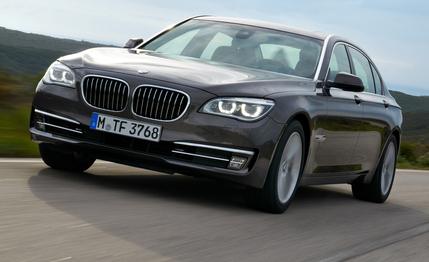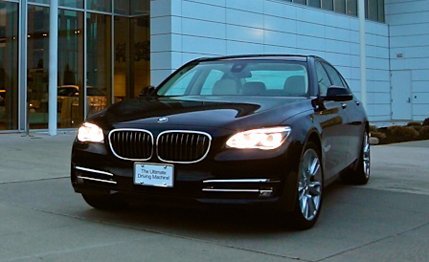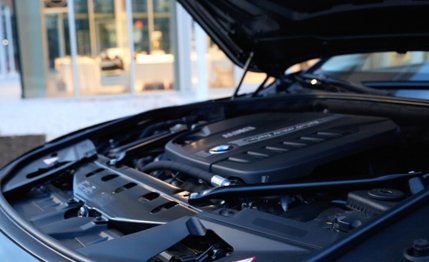 First Drive Review
First Drive Review
There was a time, three or four decades ago, when diesel power was considered perfectly acceptable for luxury cars. The protagonists then were Mercedes-Benz and Cadillac, and they sold diesel cars in considerable numbers—sadly so, in the case of Cadillac, because (together with GM’s other diesel offerings) its oil burners left a virtually indelible stain on the image of diesel technology as fuel was converted into soot, clatter, and noise; propulsion was collateral damage.
Back then, BMW didn’t participate in the energy-crisis-fueled race toward diesels. The brand was famous for its silky-smooth, naturally aspirated straight-six gasoline engines, and it took the company until 1983 to reluctantly offer its first diesel in the European-market 5-series. In fact, BMW tried everything to avoid diesels, including developing the low-revving, torquey eta gas engine.
Relegated to insignificance in the U.S. until a few years ago, diesel engines have developed polished manners and considerable muscle. Today, BMW’s straight-six turbo-diesels are among the finest on the market; in Europe, sales of 3-series, 5-series, and crossover SUV oil burners dominate over those of gasoline-powered versions. The turbo-diesel is a commonly chosen powertrain option in the 7-series as well, due to its generous torque even at low revs and a drinking habit that is far easier on the wallet than those of its gas-powered siblings.

This year, BMW has decided America is ready for a compression-ignition 7-series. Enter the 740Ld xDrive, whose clumsy model designation denotes a 3.0-liter, long-wheelbase, diesel-powered, all-wheel-drive model. The U.S.-market 7-series diesel gets the 740d moniker even though it serves up barely more power than the 254-hp European-market 730d. The U.S.-bound 740Ld is rated at 255 horsepower, available at 4000 rpm. Europe’s 740d makes 300 horses, and the triturbo M750Ld cranks out a healthy 376. The relatively low power rating of the U.S. version is partly due to the exhaust treatment, which consists of an NOx storage catalyst, a particulate filter, and a selective catalyst reduction system with urea injection—all required to comply with U.S. emissions regulations.
Riding the Torque Wave
But as with many other diesel engines, don’t let the relatively low power rating fool you. What matters in everyday traffic is this engine’s healthy 413 lb-ft of torque, which is available in a broad band from 1500 to 3000 rpm. That generous grunt is accessible virtually at any road speed, thanks to the car’s wide-ratio eight-speed ZF automatic transmission. From a standstill, the 740Ld xDrive takes off with a vengeance. We estimate it will charge to 60 mph in just under six seconds and continue to ride the wave of torque up to its governed top speed of 130 mph. It is absolutely unnecessary to put the driving-mode selector into the Sport setting; this engine appreciates and rewards cruising at low revs.
In the city and at low speeds, there is no mistaking this diesel-powered vehicle for a gas-fed one, but its rumble is subdued and reassuring. At highway speeds, what minor combustion noise you might have heard around town is drowned out entirely. The best part about the diesel, of course, is its fuel efficiency. It is EPA-rated at a conservative 31 mpg highway, and we found it easy to top this figure. You can rest assured you won’t need to refuel this diesel nearly as often as you would a gasoline-powered 7.

The current 7-series is a heavy car, and this particular one, with its all-wheel drive and long wheelbase, should tip the scales at a whopping 4700 pounds. But it is still one of the best-handling full-size luxury sedans, and it feels competitive enough that it’s somewhat surprising that the next-generation 7-series will appear at dealerships in 2015. We hope BMW won’t wait until the last year of the model run to bring in the diesel the next time around.
We’re anxious to have one of these in our hands for a longer period so we can gather performance and fuel-economy numbers and see if our initial impressions prove true. Diesel is most definitely acceptable for luxury cars once again.